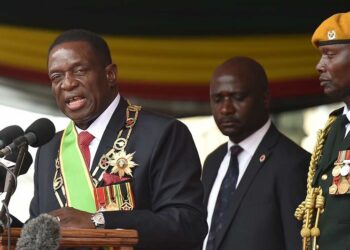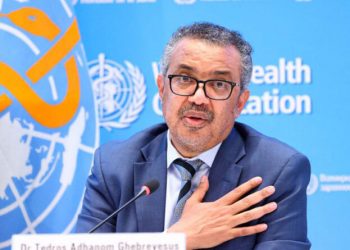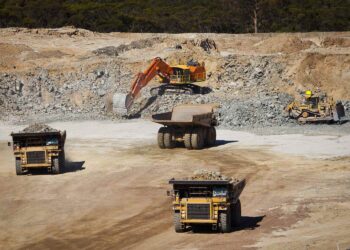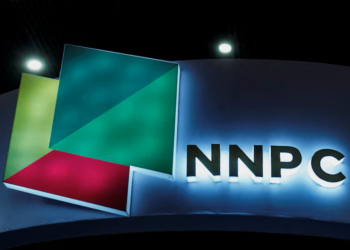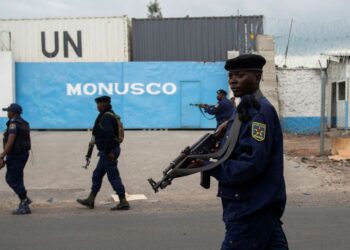Poverty is a diverse and dynamic concept, and although there is no universal definition, it generally refers to deprivations suffered in monetary or non-monetary terms. Hence, poverty is a multi-dimensional concept. In monetary terms, poverty is associated with inadequate income to purchase essential items for survival, while non-monetary poverty can be linked to, amongst others, inadequate access to public services and private asset ownership, social isolation, low educational attainment, poor health, and vulnerability to crime. The conceptual understanding of poverty could be conceived in three main categories: absolute poverty, relative poverty, and capabilities poverty. Absolute poverty means that the person lives on subsistence, or below what is minimally required to live an integrated life. Relative poverty makes a comparison between the lowest income group and a higher income group’s living conditions. It thus captures the relative inequalities in a given study and can include some normative analysis of acceptable levels of inequality. Capabilities poverty refers to an understanding that people need to have the wherewithal to meet basic needs in a manner and to a degree that enables them to participate socially and economically.
Economic prosperity remains elusive for the vast majority of African citizens. Poverty is stubbornly high across the region; according to the World Bank’s latest data, 41% of people in sub-Saharan Africa live in absolute destitution, below the $1.90 poverty line. The Bank also estimates that 87% of the global poor will be concentrated in sub-Saharan Africa by 2030 if current economic trends continue. Southern Africa is the poorest region on the African continent both in terms of monetary and multidimensional measures of poverty, with about half (45.1 percent) of its population living in extreme poverty (Economic Commission for Africa, 2023). Southern Africa is a case in point. Sustained population growth and modest economic growth in the midst of pervasive inequality mean that the region has seen and will continue to see diverging poverty trends (a drop in relative poverty and a rise in absolute poverty). While the social grants program has had a modicum of success in addressing poverty, there are underlying concerns, both about its long-term sustainability and the possibility that a culture of welfare dependency is being fostered. Related programs are also turning out to be inherently problematic.
History shows that obstructing foreign trade and investments rarely leads to sound and sustainable economic growth. On the other hand, countries setting out to join the World Trade Organization (WTO) seek to use trade to develop their economies. Making this kind of political choice entails both rights and obligations. A dramatic increase in developing country participation in trade has coincided with an equally sharp decline in extreme poverty worldwide. Developing countries now constitute 48 percent of world trade, up from 33 percent in 2000, and the number of people living in extreme poverty has been cut in half since 1990, to just under one billion people. Trade has helped increase the number and quality of jobs in developing countries, stimulated economic growth, and driven productivity increases.
Therefore, trade, especially through the African Continental Free Trade Area (AfCFTA), has the potential to lower poverty and inequality in Southern Africa, but it will need to be implemented strategically and deal with issues like trade facilitation and infrastructure. As a result of the above, this article seeks to understand how Southern African states can reduce poverty through trade. Lastly, the essay will answer whether Africa is ready for a free trade agreement by employing a qualitative research approach and reviewing current literature. How infrastructural development fuels regional trade evolution; how the region will navigate their various economic and, by extension, political interests in the hope of contributing to the success of the AfCFTA and other trade initiatives in the Southern African region.
Trade as a Potential Solution for Poverty Reduction
Today, we can still find examples of intra-regional trade with roots in the colonial period. The British formed Africa’s first customs unions in their Southern and East African colonies at the end of the 19th century, mainly to facilitate the free flow of goods between the colonies. Still, the Southern African and East African blocs, known as the Southern African Development Community (SADC) and the East African Community (EAC), have the highest levels of intra-regional trade in Africa. The roots of Southern Africa’s relatively high level of economic integration date back to 1889, culminating in the establishment of the Southern African Customs Union (SACU) in 1910. SACU integrated the economies of the British Cape Colony (the southern half of today’s South Africa) and the Orange Free State (present-day South Africa’s Free State). SACU expanded gradually until 1915, when it comprised present-day South Africa, Namibia, Swaziland, Botswana, and Lesotho. In East Africa, the first colonial customs union was founded in 1900 as the East Africa Customs Union Collection Centre. This colonial antecedent of today’s EAC was established in the Kenyan port of Mombasa to collect customs duties for imports to Uganda. SADC was to pursue a tariff reduction program at varying levels of speed based on the aforementioned clusters, where the developed cluster was expected to achieve substantially all trade thresholds by the fifth year of the protocol’s implementation. The developing cluster was generally expected to mid-load their tariff reduction and achieve the all-trade threshold by the seventh year or eighth year of the protocol’s implementation. Lastly, the category of the least developed countries was expected to backload their tariff elimination process, allowed to go beyond the period of eight years, but not more than 12 of the implementation of the Protocol.
The region is developing a regional framework and program to improve the diversification and restructuring of the SADC industrial base. SADC is also undertaking several activities in support of developing value chains that can improve its industrialization base and productivity and enhance the region’s participation in global value chains. This is being done in the context of the region’s identified six priority areas where the value chains can be established and for which regional strategies should be developed. The six priority areas are agro-processing, minerals beneficiation, pharmaceuticals, consumer goods, capital goods, and services. Trade is fundamental to the economic development of the Southern African Development Community (SADC) region and has broader benefits that support the process of regional integration. Nations that expand trade with others through liberalization of trade policies increase economic growth and improve the quality of life of their people (SADC, 2025). Meanwhile, the European Union-South African Trade and Development Cooperation Agreement, which came into effect in 2000, is a progressive Free Trade Agreement (FTA) that has become the cornerstone of the regional trading landscape. South Africa has also negotiated agreements with the European Free Trade Association, the United Kingdom, and Mercosur. South Africa, through SADC, has finalized negotiations on Phase I of the Tripartite Free Trade Agreement, which links SADC, the East Africa Community (EAC), and the Common Market of Eastern and Southern Africa (COMESA) into a free trade area. South Africa is also a member of the African Continental Free Trade Area (AfCFTA), which commenced trading in January 2021 (International Trade Administration, 2024). The success of the recently launched African Continental Free Trade Area (AfCFTA) partly hinges on the performance of the regional FTAs like the SADC FTA. This is because it is unlikely that the African Union, through the AfCFTA, will achieve continentally what regional economic communities failed to achieve at the regional level.
How Infrastructural Development Fuels Regional Trade Growth
In Southern Africa, most infrastructure projects, whether in transport, energy, or water, tend to bypass the poor, especially in the rural countryside. In order for regional cross-border infrastructure to promote inclusive growth and development that contributes to poverty eradication, it must facilitate access to opportunities by the poor and enable the private sector to create employment, especially in remote areas where the rural poor are concentrated. In addition, the direct contribution of infrastructure development to poverty eradication can be through job creation in the construction, operation, and maintenance of infrastructure facilities, and when local suppliers are contracted to provide services. Regional cross-border infrastructure, especially roads and bridges, connects the poor in remote areas to the main networks if community access roads are provided. In order to achieve this, regional cross-border infrastructure projects must be linked to national development strategies and plans and aligned with sectoral investments.
Multilateral development finance institutions can play a crucial role in facilitating and financing regional infrastructure development initiatives. The African Development Bank already invests in physical infrastructure development at regional and national levels throughout Africa. The World Bank does the same, but its mandate goes beyond Africa. National development finance institutions can also contribute to resource mobilization for financing regional cross-border infrastructure projects. The Industrial Development Corporation of South Africa and the Development Bank of Southern Africa, which are owned by the South African government, are gradually making inroads into financing cross-border development projects. Bilateral development finance institutions such as the German Development Bank (KfW) and the French Development Agency (AFD) also finance regional and national infrastructure development in the Southern African Development Community (SADC).
Transformative Trade: Tackling Poverty in Southern Africa
The African Continental Free Trade Area (AfCFTA) is the world’s largest free trade area, bringing together the 55 countries of the African Union (AU) and eight (8) Regional Economic Communities (RECs). The overall mandate of the AfCFTA is to create a single continental market with a population of about 1.3 billion people and a combined GDP of approximately US$ 3.4 trillion. The AfCFTA is one of the flagship projects of Agenda 2063: The Africa We Want, the African Union’s long-term development strategy for transforming the continent into a global powerhouse. The scope of AfCFTA is large. The agreement will reduce tariffs among member countries and cover policy areas such as trade facilitation and services, as well as regulatory measures such as sanitary standards and technical barriers to trade. Full implementation of AfCFTA would reshape markets and economies across the region and boost output in the services, manufacturing, and natural resources sectors (World Bank, 2022). “Leveraging the African Continental Free Trade Area for the reduction of poverty and inequality in Southern Africa,” a recent report by the United Nations Economic Commission for Africa (UNECA), explores the impact of implementing the African Continental Free Trade Area (AfCFTA) in Southern Africa, focusing on its potential to reduce poverty and inequality across the subregion while considering the diverse realities within and between countries. The report also includes a critical analysis of the challenges and opportunities relating to the reduction of poverty and inequality presented by the area in Southern Africa.
In the report, recommendations are advanced for policy options and measures that could maximize the potential benefits of the area to reduce poverty and inequality in Southern Africa. While the Area promises to boost intra-African trade, assessment is needed of its effects on the marginalized sectors of the economy, in particular informal cross-border trade, in which most of the participants are women and young people. Experts at the AfDB also suggest that, regional integration is vital for the building of markets, the creation of robust and diverse economies, as well as increasing opportunities for growth and attracting investment finance. Adding that, if the region is to succeed in leveraging the AfCFTA for poverty and inequality reduction, there should be no business as usual. Finally, the Southern African region needs to promote inclusive economic growth through the diversification of economies and value addition to natural resources before export. Poverty and inequality could also be tackled through strengthening and expanding social protection programs and addressing social exclusion by promoting gender equality and the empowerment of historically disadvantaged groups.
















































